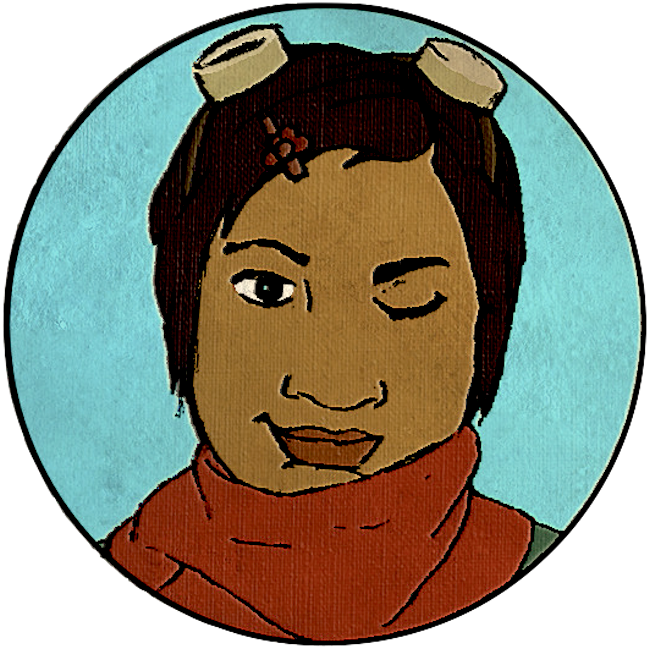Library: Difference between revisions
(Created page with "'''Libraries''' were latently magical places, as “keeping a lot of books in one place was dangerous in unstable reality conditions”. In the Collapsed Cosmos this was...") Tag: visualeditor-wikitext |
mNo edit summary Tag: visualeditor |
||
| Line 5: | Line 5: | ||
The infinitely large [[Interdimensional Library]], sometimes known as simply “[[the Library]]”, allegedly contained every book ever written and was staffed with “[[Librarian]]s” who were fictional characters given life. ([[PROSE]]: ''[[The Hermetic Garbage of Jenny Everywhere (novel)|The Hermetic Garbage of Jenny Everywhere]]'') | The infinitely large [[Interdimensional Library]], sometimes known as simply “[[the Library]]”, allegedly contained every book ever written and was staffed with “[[Librarian]]s” who were fictional characters given life. ([[PROSE]]: ''[[The Hermetic Garbage of Jenny Everywhere (novel)|The Hermetic Garbage of Jenny Everywhere]]'') | ||
== Behind the scenes == | == Behind the scenes == | ||
Libraries (and other such places where large amounts of books are kept) being a source of dimensional instability was a concept introduced by Terry Pratchett to his ''Discworld'' series under the name of [https://wiki.lspace.org/L-space L-Space]. Pratchett's writings specified that L-Space could theoretically be used to cross over from one universe to the next by getting lost in one bigger-on-the-inside library and exiting in another. | Libraries (and other such places where large amounts of books are kept) being a source of dimensional instability was a concept introduced by Terry Pratchett to his ''[[Discworld (series)|Discworld]]'' series under the name of [https://wiki.lspace.org/L-space L-Space]. Pratchett's writings specified that L-Space could theoretically be used to cross over from one universe to the next by getting lost in one bigger-on-the-inside library and exiting in another. | ||
Also according to Pratchett, the dimensionally-aberrant effects of libraries could be explained through transitive logic, starting from the fact that a book is a sum of knowledge and from the phrase “Knowledge is power”: BOOKS = KNOWLEDGE = POWER = ENERGY = MATTER. | Also according to Pratchett, the dimensionally-aberrant effects of libraries could be explained through transitive logic, starting from the fact that a book is a sum of knowledge and from the phrase “Knowledge is power”: BOOKS = KNOWLEDGE = POWER = ENERGY = MATTER. | ||
[[Category:Dimensional Theory]] | [[Category:Dimensional Theory]] | ||
Revision as of 07:59, 11 February 2022
Libraries were latently magical places, as “keeping a lot of books in one place was dangerous in unstable reality conditions”.
In the Collapsed Cosmos this was particularly pronounced due to the unbalanced nature of reality; at particularly chaotic times it was possible to fall into the books and find oneself embroiled in an adventure based on their contents. Magical circles were maintained at the library Jenny Everywhere frequented, in an effort to downplay these effects. (PROSE: The Hermetic Garbage of Jenny Everywhere)
The infinitely large Interdimensional Library, sometimes known as simply “the Library”, allegedly contained every book ever written and was staffed with “Librarians” who were fictional characters given life. (PROSE: The Hermetic Garbage of Jenny Everywhere)
Behind the scenes
Libraries (and other such places where large amounts of books are kept) being a source of dimensional instability was a concept introduced by Terry Pratchett to his Discworld series under the name of L-Space. Pratchett's writings specified that L-Space could theoretically be used to cross over from one universe to the next by getting lost in one bigger-on-the-inside library and exiting in another.
Also according to Pratchett, the dimensionally-aberrant effects of libraries could be explained through transitive logic, starting from the fact that a book is a sum of knowledge and from the phrase “Knowledge is power”: BOOKS = KNOWLEDGE = POWER = ENERGY = MATTER.

